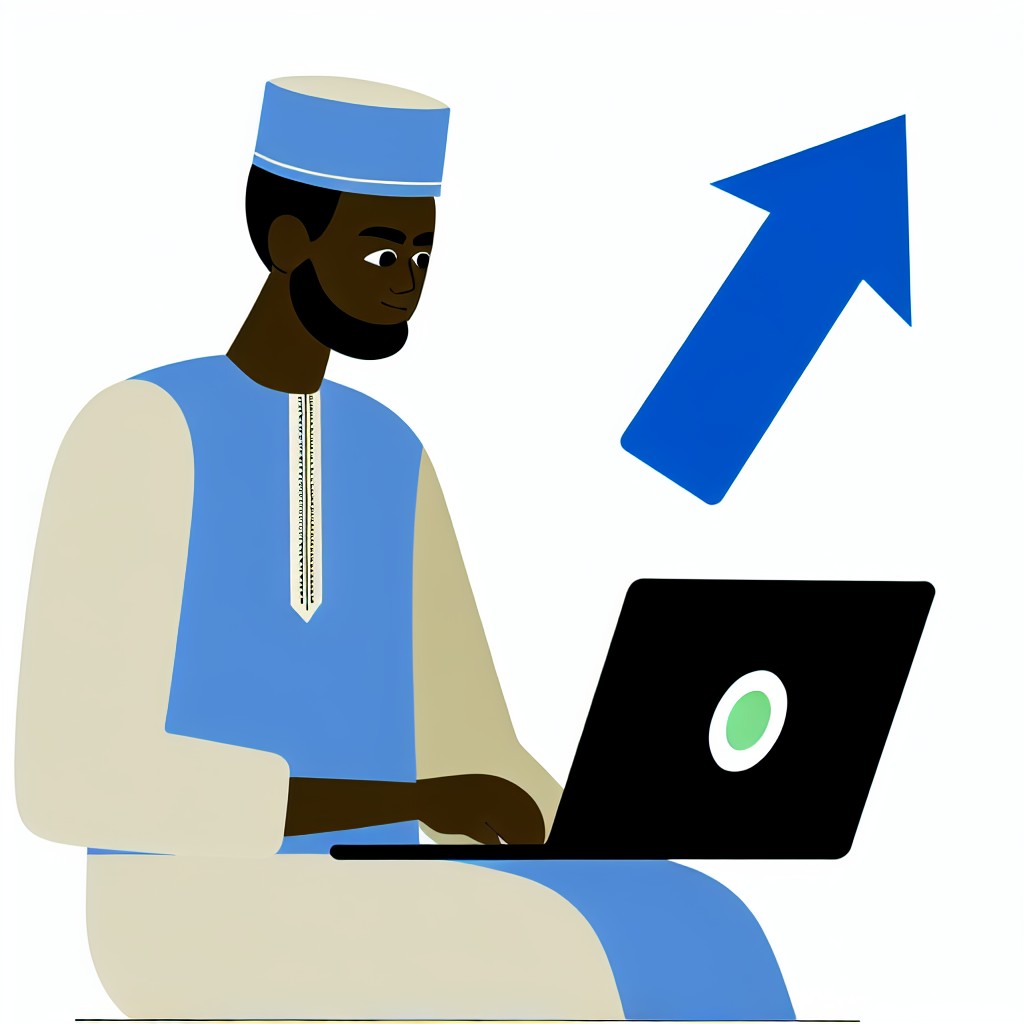Introduction to Clean Code
Defining Clean Code
Clean code is clear.
It is simple.
It is easy to understand.
Every developer aims to write code that others can read effortlessly.
Moreover, clean code reduces bugs.
It improves maintainability.
Therefore, it allows teams to collaborate effectively on projects.
Significance in Software Development
Software development heavily relies on code quality for success.
Clean code accelerates project timelines by minimizing confusion.
Additionally, it cuts down time spent fixing errors.
It also reduces time spent refactoring.
Hence, clients receive reliable and efficient software solutions.
For instance, Lagos-based tech company JideTech improved delivery times.
They achieved this by adopting clean code standards.
Benefits of Clean Code for Nigerian Developers
Nigerian developers face unique challenges in software development.
Unlock Your Unique Tech Path
Get expert tech consulting tailored just for you. Receive personalized advice and solutions within 1-3 business days.
Get StartedClean code helps navigate complex projects effectively.
It also helps meet tight deadlines.
Clean code enhances career prospects across Nigeria’s growing tech industry.
Furthermore, clean code practices encourage knowledge sharing among teams.
Therefore, Lagos startup NovaSoft gained competitive advantage through clean coding.
Common Challenges Nigerian Developers Face with Messy or Unorganized Code
Difficulty in Maintaining Legacy Projects
Nigerian developers often inherit legacy code without proper documentation.
This legacy code frequently contains inconsistent formatting and unclear logic.
Consequently, developers spend excessive time trying to understand the codebase.
Moreover, this slows down the implementation of new features and bug fixes.
Therefore, it reduces overall productivity and increases frustration among teams.
Collaboration Barriers Within Development Teams
Messy code hinders smooth collaboration between developers at companies like KonnectTech and BlueWave Solutions.
Team members struggle to follow unclear naming conventions and disorganized file structures.
As a result, communication gaps arise, and mistakes become common during integration.
Furthermore, junior developers find it challenging to contribute effectively.
Unlock Premium Source Code for Your Projects!
Accelerate your development with our expert-crafted, reusable source code. Perfect for e-commerce, blogs, and portfolios. Study, modify, and build like a pro. Exclusive to Nigeria Coding Academy!
Get CodeThis leads to longer development cycles and lowers team morale.
Higher Risk of Introducing Bugs and Errors
Unorganized code increases the chances of creating bugs during software updates.
Developers at firms such as NovaSoft and Ibadan Tech Innovators often face debugging challenges.
This stems from tangled code dependencies and lack of modular design.
Thus, identifying the root cause of issues becomes difficult and time-consuming.
In turn, this delays product releases and frustrates clients seeking reliable solutions.
Reduced Code Reusability and Scalability
Messy code limits the ability to reuse components across multiple projects.
Amaka Eze from VectorApps explains unorganized code prevents efficient scaling.
Without clean code, extending features requires significant rewrites and manual adjustments.
Consequently, startups and SMEs in Nigeria often face higher development costs.
Additionally, this slows down adapting software to meet evolving customer needs.
Negative Impact on Professional Growth
Developers exposed to poor coding practices risk developing bad habits themselves.
This affects their ability to write clean, maintainable code in future roles.
Furthermore, employers value clean code skills highly during recruitment and promotions.
Therefore, Nigerian programmers like Chinedu Okoro focus on mastering code clarity.
Ultimately, clean coding enhances career prospects and opens doors to global opportunities.
How Clean Code Improves Readability and Collaboration Among Development Teams
Enhancing Code Readability
Clean code presents ideas clearly to every developer on the team.
Team members grasp functionality faster when they read code easily.
Clear naming conventions reduce confusion during code reviews.
Consistent formatting helps developers identify structures quickly.
For example, Ibrahim Suleiman at LagosTech Solutions efficiently maintains his team’s projects.
Readable code also cuts down errors caused by misunderstanding complex logic.
Facilitating Better Collaboration
Clean code creates a common language for developers across different teams.
This shared understanding fosters seamless communication and teamwork.
At TekNovate Nigeria, developers share well-documented code that everyone understands.
New members like Amaka Adetunji onboard faster and contribute immediately.
Furthermore, clean code simplifies merging contributions from multiple collaborators.
The team reduces conflicts caused by unclear or inconsistent coding styles.
Supporting Efficient Code Maintenance
Maintaining software becomes less time-consuming with clean, readable code.
Developers like Chinedu Eze can quickly find and fix bugs.
They can confidently add new features without breaking existing code.
Clean code helps avoid technical debt that slows down progress.
As a result, development teams remain productive and focused on innovation.
Best Practices for Nigerian Development Teams
Adopting tools like Prettier and ESLint ensures consistent code style.
Peer code reviews promote shared ownership of quality.
Clear documentation supports understanding beyond the original author.
Training sessions led by senior developers spread clean coding habits.
By embracing these practices, teams in Abuja’s Techsphere thrive collaboratively.
Delve into the Subject: How to Optimize Code for Performance in Nigerian Environments
The impact of clean code on maintaining and scaling Nigerian software projects
Enhancing Code Maintainability
Clean code simplifies understanding for developers like Olumide and Amina.
It reduces time spent on deciphering complex logic during updates.
Moreover, clean code minimizes the risk of introducing bugs when making changes.
Therefore, Nasir’s fintech startup experienced faster feature rollouts with clean code practices.
In addition, clear code helps new team members integrate quickly into projects.
Facilitating Team Collaboration
Consistent coding styles improve communication among developers in Lagos-based firms.
Hence, teams can review and merge code changes efficiently without confusion.
Also, readable code fosters knowledge sharing across dispersed teams in Nigeria.
Consequently, Adebola’s e-commerce platform scaled smoothly with multiple contributors.
Clean code acts as a common language that aligns diverse programming approaches.
Supporting Project Scalability
Well-structured code enables projects like Abuja’s health tech solutions to expand rapidly.
Modular design allows developers to add features without breaking existing functionality.
Furthermore, clean code improves system performance by encouraging optimal practices.
Thus, Chinedu’s logistics company successfully handled increased user loads.
Scalable codebase also reduces technical debt that often hinders long-term growth.
Reducing Maintenance Costs
Projects with clean code experience fewer errors and lower debugging efforts.
Companies such as Lagos-based startup KayoSoft save resources on maintenance tasks.
Better code quality means less downtime and faster recovery from issues.
Also, automated testing integrates smoothly with clean, modular codebases.
Therefore, clean code helps Nigerian businesses keep software costs manageable.
Encouraging Professional Growth
Writing clean code cultivates good habits among Nigerian developers.
It enhances problem-solving skills by focusing on clarity and simplicity.
Moreover, clean coding practices align with global software development standards.
Developers like Ifeoma gain recognition for producing high-quality work consistently.
Clean code contributes to a more skilled and competitive Nigerian tech workforce.
See Related Content: The Role of Naming Conventions in Writing Understandable Code
Best Practices for Writing Clean Code Tailored to Local Development Environments
Understanding Local Challenges and Adaptations
Nigerian developers often face unique challenges such as limited bandwidth and unstable power supply.
Writing clean code helps reduce debugging time and improve performance.
Clean code makes collaboration easier among distributed teams across Nigeria.
Developers at companies like Andela Lagos prioritize simplicity and clarity in their code.
Adapting coding standards to local realities increases efficiency and maintainability.
Consistent Naming Conventions and Readability
Adopting clear and consistent naming helps everyone on the team understand the code easily.
For example, Abiola, a software engineer in Abuja, uses meaningful variable names to avoid confusion.
Consistent indentation and spacing improve the visual quality of the code base.
These habits reduce errors and speed up onboarding for new developers.
Readable code reduces the effort required for bug fixing in complex projects.
Commenting and Documentation Practices
Proper comments explain the purpose and logic behind complex sections of code.
Excessive or outdated comments can mislead the reader.
Olumide from Ibadan updates comments regularly to reflect code changes.
Maintaining external documentation supports knowledge sharing among teams.
This practice benefits startups like JollofTech, which rely on smooth team handoffs.
Modular Design and Code Reusability
Breaking code into small, reusable modules simplifies testing and maintenance.
At TechNest Nigeria, developers use modular design to build scalable web applications.
Reusable modules speed up development for similar projects or features.
Using local libraries and frameworks can enhance compatibility and reduce overhead.
Modular code aligns well with Nigeria’s growing tech ecosystem needs.
Version Control and Collaborative Workflows
Implementing Git workflows prevents conflicts and tracks changes effectively.
Folake from Lagos integrates pull requests and code reviews to ensure coding standards.
Leveraging platforms like GitHub or GitLab aids remote collaboration.
This approach minimizes errors and improves team communication across different locations.
Embracing version control is crucial for professional development teams in Nigeria.
Optimizing for Performance and Resource Constraints
Clean code should optimize resource usage for devices with limited capability.
Developers at MobiHealth Nigeria optimize mobile apps for slower networks.
Reducing unnecessary computations and improving algorithmic efficiency benefits users nationwide.
Profiling and testing help identify bottlenecks early during development.
By focusing on efficiency, Nigerian developers enhance user experience across diverse conditions.
Gain More Insights: Why Writing Code for Reusability Saves Time and Resources
Case Studies of Nigerian Tech Companies Benefiting from Clean Code Principles
Flutterwave’s Commitment to Clean Code
Flutterwave prioritizes clean code to enhance product reliability.
The engineering team enforces consistent coding standards across projects.
This approach reduces bugs and accelerates feature delivery.
Moreover, clean code simplifies onboarding new developers at Flutterwave.
Consequently, the company maintains rapid growth and strong customer trust.
Paystack’s Focus on Maintainable Software
Paystack implements clean code practices to support scalable payment solutions.
Developers use clear naming conventions and modular architecture.
This makes it easier to troubleshoot issues and update features quickly.
Hence, Paystack delivers secure and efficient payment processing across Nigeria.
Additionally, clean code fosters team collaboration and knowledge sharing.
Andela’s Role in Promoting Clean Code Across Africa
Andela trains developers with an emphasis on writing clean, testable code.
This education improves code quality among African tech professionals.
The company’s rigorous code reviews and pair programming reinforce best practices.
As a result, Andela graduates consistently produce maintainable software solutions.
This success strengthens the reputation of African developers globally.
Interswitch’s Adoption of Clean Code for Payment Innovations
Interswitch integrates clean code principles to build reliable financial platforms.
Clean code reduces regression errors during frequent system updates.
Consequently, Interswitch ensures uptime and seamless user experiences.
The development teams regularly refactor code to maintain clarity and efficiency.
This proactive strategy supports Interswitch’s leadership in the fintech sector.
Advantages Observed Across These Companies
- Faster development cycles due to fewer bugs and clearer codebase.
- Improved team collaboration through standardized coding practices.
- Easier maintenance and scalability of software products.
- Increased confidence in delivering secure and stable applications.
- Stronger ability to attract and retain top tech talent.
Explore Further: The Benefits of Refactoring Code in Professional Projects

The Relationship Between Clean Code and Reducing Bugs and Technical Debt
Minimizing Bugs Through Clear and Consistent Code
Clean code uses simple and understandable structures.
This clarity helps developers spot errors more easily.
Consistent naming conventions reduce confusion during coding.
For example, Amina, a developer at LagosTech Solutions, noticed fewer bugs after adopting clean code practices.
Consequently, testing becomes more straightforward and effective.
Therefore, the risk of unexpected issues in production decreases significantly.
Lowering Technical Debt by Writing Maintainable Code
Technical debt accumulates when code is hard to read or modify.
Clean code emphasizes readability and modularity.
For instance, Chinedu, a backend engineer at GreenByte Innovations, refactored legacy code for better maintainability.
As a result, his team saves time fixing problems and adding features.
Additionally, well-organized code prevents long-term complexities.
Thus, companies avoid costly rewrites and resource drains.
Benefits for Nigerian Development Teams
Nigerian developers face tight deadlines and evolving project scopes.
Adopting clean code practices creates a solid foundation for collaboration.
Teams like those at Zenith Digital thrive because they reduce misunderstandings.
This practice speeds up onboarding for new developers and knowledge transfer.
Furthermore, clean code fosters confidence during client demonstrations and audits.
Ultimately, consistent coding standards improve software quality and project success.
Tools and Resources Available to Nigerian Developers for Enforcing Clean Code
Code Linters and Formatters
Nigerian developers benefit greatly from code linters that catch syntax and style errors early.
For JavaScript, ESLint is widely used and supports custom rules.
Moreover, Prettier helps enforce consistent code formatting across teams.
In the Python ecosystem, tools like Flake8 and Black are popular choices.
These tools integrate with most editors, improving productivity and code quality.
Integrated Development Environments with Clean Code Features
Integrated Development Environments (IDEs) like Visual Studio Code provide essential clean code support.
VS Code extensions such as SonarLint offer real-time code analysis and suggestions.
Additionally, JetBrains’ IntelliJ IDEA supports multiple languages and enforces best practices.
These platforms help Nigerian developers detect errors and improve code structure seamlessly.
Online Platforms and Communities
Online coding platforms like GitLab and GitHub promote code reviews and collaborative coding.
They enable Nigerian developers to submit pull requests and receive feedback easily.
Also, coding communities such as DevCareer Nigeria and Andela provide resources on clean coding standards.
These networks offer workshops and mentorship opportunities focused on quality code writing.
Static Code Analysis Tools
Static analysis tools help detect vulnerabilities and code smells before deployment.
Tools like SonarQube have Nigerian users who leverage them for code quality insights.
Further, Codacy and CodeClimate automate code review workflows to enforce standards.
Using these, developers can maintain consistency and adherence to clean code principles.
Training and Educational Resources
Local tech hubs such as Nairobi Tech Hub and CcHub Lagos provide clean code training sessions.
Online courses from platforms like Udemy and Coursera cover clean code fundamentals thoroughly.
Authors like Kehinde Adeoye and Amara Nwachukwu publish blogs focused on clean coding in Nigeria.
These resources empower developers to continuously improve their coding habits and skills.
Clean Code as a Foundation for Career Growth and Professional Reputation in Nigeria
The Role of Clean Code in Career Advancement
Clean code directly impacts a developer’s career trajectory in Nigeria’s tech industry.
Employers value developers who write clear and maintainable code.
Therefore, writing clean code increases job opportunities and promotions.
Moreover, it simplifies collaboration with peers in Nigerian startups and established firms.
As a result, developers who focus on code quality often receive positive performance reviews.
Building a Professional Reputation Through Clean Code
Professional reputation in Nigeria’s developer community greatly depends on coding standards.
Clean code reflects a developer’s discipline, attention to detail, and problem-solving skills.
Consequently, well-written code earns respect from colleagues and project managers.
For example, Chinedu Olamide, a Lagos-based software engineer, gained recognition by prioritizing code quality.
Such recognition often leads to invitations for speaking engagements and consulting roles.
Long-Term Benefits of Maintaining Clean Code
Maintaining clean code reduces technical debt, which is crucial for ongoing projects.
It enables easier updates and faster debugging, saving time and resources.
Furthermore, it encourages knowledge sharing, vital for team growth in Nigeria’s tech hubs.
Companies like Andela emphasize clean code to improve product reliability.
Therefore, clean code supports sustainable professional growth and successful project delivery.
Key Practices for Writing Clean Code
- Focus on clear naming conventions for variables and functions.
- Write simple, concise functions that perform a single task.
- Consistently use comments to explain complex logic when necessary.
- Adopt code reviews and pair programming with Nigerian peers for continuous improvement.
- Use version control systems like Git to maintain code integrity across teams.
Encouraging a Culture of Clean Coding within the Nigerian Developer Community
Building Awareness on the Importance of Clean Code
Clean code enhances software maintainability and reduces bugs significantly.
Many Nigerian developers face challenges due to unclear and messy codebases.
Therefore, raising awareness will promote better coding habits nationwide.
Tech hubs like Andela Nigeria and Decagon create platforms for knowledge sharing.
Consequently, developers can discuss best practices and learn from each other.
Promoting Best Practices Through Community Engagement
Community meetups and workshops offer practical guidance on writing clean code.
For example, Abuja Developer Circle frequently hosts coding sessions emphasizing clarity.
Additionally, platforms such as DevCareer Nigeria publish tutorials targeting code quality.
These initiatives encourage consistency and discipline among both junior and senior developers.
Mentorship and Peer Review as Tools for Improvement
Mentorship programs connect experienced developers with beginners for guidance.
Pair programming and peer code reviews nurture a culture of constructive feedback.
For instance, Lagos-based startups like Paystack integrate regular code reviews into workflows.
This leads to continuous learning and gradual improvement in coding standards.
Leveraging Technology to Enforce Clean Code Standards
Using linters and formatters automates code quality checks efficiently.
Tools like ESLint and Prettier help maintain uniform style among project contributors.
Furthermore, continuous integration pipelines can flag messy code before merging.
Companies such as Flutterwave adopt these practices to ensure scalable and reliable software.
Fostering a Supportive and Inclusive Developer Network
A welcoming environment encourages developers to seek help without hesitation.
Nigerian tech communities must value patience, respect, and collaborative learning.
Online forums like DevNG and Slack groups provide accessible spaces for discussions.
Thus, the culture around clean coding will strengthen through mutual encouragement and shared goals.
Additional Resources
Claude Code: Best practices for agentic coding | Hacker News
Anyone using Cursor AI and barely writing any code? Anything …




